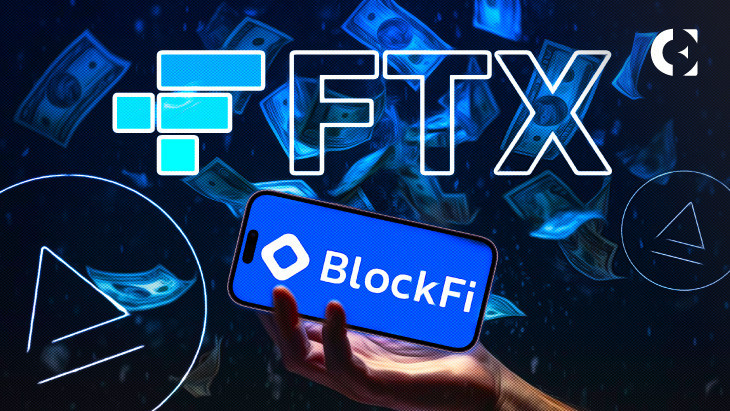Crypto Expert Louis recently revealed more insights regarding BlockFi’s bankruptcy saga. Established in 2017 by Zack Prince, the company embarked on a venture to lend out cryptocurrency. However, BlockFi’s fortune dipped, culminating in a bankruptcy filing in November 2022.
The flaw in BlockFi’s business model became apparent as it lent crypto for speculative purposes rather than productive economic activities. This risky approach was compounded by market dynamics, such as the “widow maker” trade, where investments in products like the Grayscale Bitcoin Trust turned sour, resulting in substantial losses for investors.
Moreover, BlockFi’s entanglement with major funds like Alameda Research and 3 Arrows Capital added to its woes. When these funds faced financial difficulties, FTX, led by Sam Bankman-Fried, offered a $400 million loan to rescue BlockFi.
Nonetheless, this intervention led to further complications. As such, it raised questions regarding the legitimacy of collateral used by Alameda Research and potential fraudulent activities.
Furthermore, concerns about BlockFi’s management of funds and deposits further fueled doubts about the company’s operations. Investigations into its bankruptcy revealed red flags, prompting scrutiny from creditors and regulatory authorities alike.
As Louis reported, creditors await further payouts as the bankruptcy proceedings continue. He added that the resolution timeline is prolonged by the need to prioritize FTX creditors, delaying additional distributions to BlockFi creditors.
Louis also stated that Zack Prince, BlockFi’s CEO, has shifted focus to real estate ventures, signaling a departure from the cryptocurrency industry. The uncertainty surrounding BlockFi’s future reflects the challenges stakeholders face as they grapple with the fallout from its collapse. In a parallel development, Prime Trust, another crypto player, faces challenges, including losing access to significant assets and allegations of mismanagement.
Disclaimer: The information presented in this article is for informational and educational purposes only. The article does not constitute financial advice or advice of any kind. Coin Edition is not responsible for any losses incurred as a result of the utilization of content, products, or services mentioned. Readers are advised to exercise caution before taking any action related to the company.

